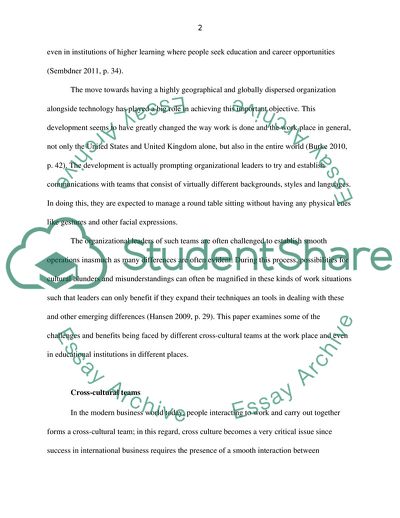Self reflection about the challenges and benefits of cross cultural Essay. https://studentshare.org/human-resources/1866257-self-reflection-about-the-challenges-and-benefits-of-cross-cultural-teams
Self Reflection about the Challenges and Benefits of Cross Cultural Essay. https://studentshare.org/human-resources/1866257-self-reflection-about-the-challenges-and-benefits-of-cross-cultural-teams.


